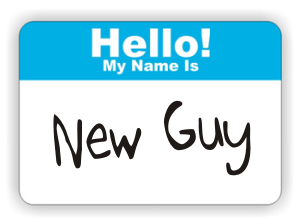Author: Patrick Egan
-

The Writing Process: Sentences, Paragraphs, Edit, Repeat
Why do we need instructions on a shampoo bottle? After only a few training exercises, any three-year-old can operate a shampoo bottle. Yet every bottle of shampoo I can find has instructions. The sequence, “lather, rinse, repeat,” became such a well-known instruction that it took on meme status in culture. Brian Regan has taken on…
-

School Is a Game: Finite and Infinite Games in Education
This is a website about education, particularly pertaining to thinking about education differently. Jason, Kolby and I really enjoy discussing educational philosophy, and hopefully you, our readers, enjoy and benefit from our peculiar take on education. In addition to being educational philosophers, we are also teachers – educational practitioners. What we talk about in our…
-

Writing on Purpose: How Ought We to Instruct Young Writers?
To teach writing is to teach an art form. It takes lots and lots of practice to write well. The way we think about writing can sometimes limit students, so that they don’t gain the practice they need to write effectively. In order to write effectively there are three concepts that should guide our goals…
-

Habit Formation: You, Your Plastic Mind, and Your Internet
Shallow. Our brains are shallow. Or at least they have become shallow. This is the point Nicholas Carr drives home in his book The Shallows, where he examined the impact the internet has had on the human brain. Almost at the middle crease of the book, he writes: The information flowing into our working memory…
-

Christ Our Habitation: A Consideration of Spiritual Habit Training in Education
I have begun to explore habit training once more. In this post I want to explore what it means to consider students as whole persons and address questions stemming from our being spiritual persons. What does it mean for Christians to apply habit training? The greatest liability of education is an undue focus on the…
-

Liberating Education from the Success Syndrome
The quest for success in education is a familiar narrative for students, teachers and home educators alike. Schools especially can often get caught up in the elusive search for success. As Christian schools, the desire to reach as many students as possible in order to make as big a kingdom impact as possible is laudable.…
-

So Your Middle Schooler Wants to Go to a Different School ? 3 Strategies for High School Retention
It’s an incontrovertible rule of life: every middle schooler will express a desire to go to a different school than the one they are currently in – any school – just as long is it is different. For small, private schools, this can be a worrisome proposition. Enrollment attrition is to be expected at key…
-

Back to School and Back to Educational Renaissance
Welcome back to a new school year and to a new year of Educational Renaissance! The back-to-school sale shelves are probably already picked over and disheveled, but Jason, Kolby and I are planning a whole series of great posts that will last you the whole school year. Look for our first post to drop next…
-

End of the 2018/2019 School Year
It’s the end of the 2018-19 school year. Most of you are on vacation now, or at the very least your work at the school can be done without students present. That said, a good many of you will roll right into summer school, or you’ve taken on a summer job, because – let’s face…

